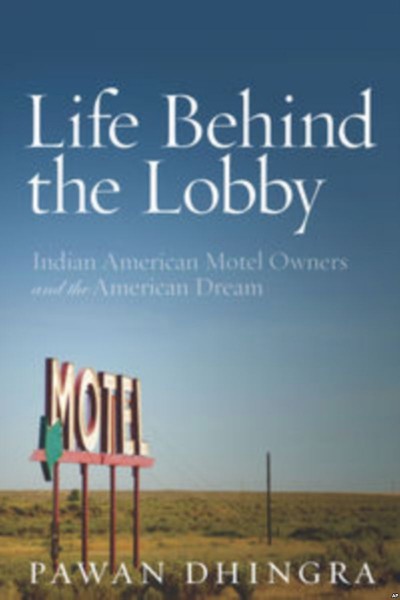 While one hears much about Asian Americans in tech, an area where Asian Americans dominate the American business world is the motel industry, where over half all U.S. motels are owned by Asian Americans and the majority of those are Indian Americans from Gujarat. These motel owners have exercised their dominance through boycott threats, sponsoring of legislative bills, and lobbying. This Voice of American article discusses Indian American motel owners and talks to Pawan Dhingra, author of “Life Behind the Lobby: Indian American Motel Owners and the American Dream,” a book that focuses on this phenomenon.
While one hears much about Asian Americans in tech, an area where Asian Americans dominate the American business world is the motel industry, where over half all U.S. motels are owned by Asian Americans and the majority of those are Indian Americans from Gujarat. These motel owners have exercised their dominance through boycott threats, sponsoring of legislative bills, and lobbying. This Voice of American article discusses Indian American motel owners and talks to Pawan Dhingra, author of “Life Behind the Lobby: Indian American Motel Owners and the American Dream,” a book that focuses on this phenomenon.
The first Indian Americans to enter the motel industry were agricultural workers in Northern California. With immigration act of 1965 and the expulsion of many Indians from Africa (an event that some may recall that was covered in the movie Mississippi Masala), many more entered the motel industry. The fact that owners could live at the motel and staff it with family made the business much more attractive than agricultural work. It also enabled the initial group of Indian Americans to bring in family from India and other places, teach them the business, and have them go out and run their own hotels.
Indian American motel owners eventually banded together and formed the influential organization, the Asian American Hotel Owners Association (AAHOA). The AAHOA has focused on fair franchising – making franchisers not dump all of the risk of a franchise on the franchisee. For example, a hotel franchiser could get a franchisee to invest in one of their properties, and if the franchiser thought conditions are right, open up a competing franchise right next door. The AAHOA demonstrated their power by ousting Choice Hotels from their organization, and only accepted them back after they promised to behave better. The AAHOA as also sponsored bills in California and New Hampshire to codify fair franchising, although a recent bill introduced in California was recently killed.
AAHOA members do worry about the future of the organization. As the organization gets larger and more politicized as members jockey for power, they worry that the younger generation will be turned off by it and the business. Dhingra says that many see how hard their parents work and then get a degree and a white collar job. Still, some younger Indian Americans are staying in the business. Dhingra tells the story of how a young Indian American got an offer from the Waldorf Astoria in New York, but turned it down to run franchise motel owned by his family. While his American friends were surprised, his Indian American friends understood that he wouldn’t want to go to a great hotel and be middle management. He adds: “They really want to be in charge of their own destiny, and small businesses allow that.” Given the glass ceiling for Asian Americans in the corporate world, I can understand that point of view.








